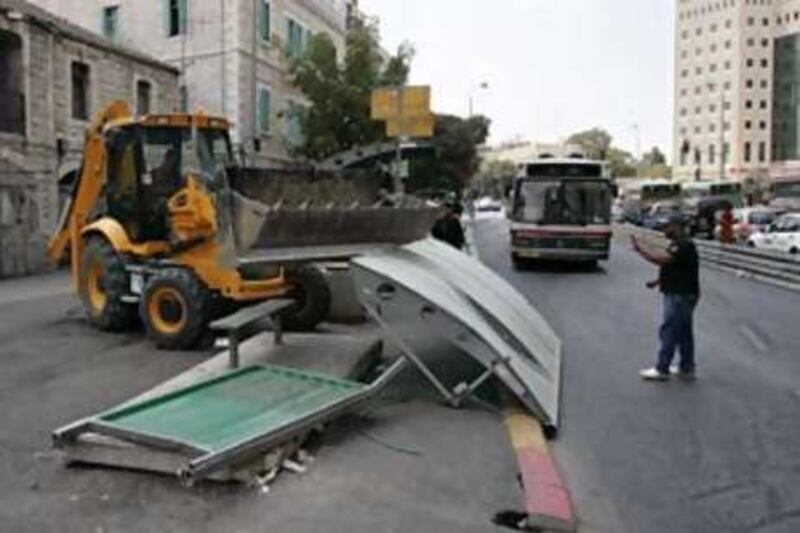Israeli authorities are considering demolishing the home of a Palestinian man who went on a bulldozer rampage in Jerusalem and killed three people before he was shot dead. While a military inquiry found in the past that the practice was ineffectual, much of the political establishment has come out in favour of destroying the house of any Jerusalem Palestinian who conducts attacks in Israel. "Following a request by the government, Attorney General Menahem Mazuz will look today into the legal problems that might be involved in demolishing the houses in east Jerusalem," the justice spokesman Moshe Cohen said.
Israeli law distinguishes between Arab east Jerusalem, which Israel annexed after the 1967 Middle East war, and the rest of the occupied West Bank, which remains under military rule. The Israeli prime minister Ehud Olmert raised the issue just hours after a Palestinian from east Jerusalem ploughed a bulldozer into several vehicles on a deadly rampage in the heart of the city yesterday. "The prime minister held consultations last night with the relevant government bodies and the military in the wake of the attack," Mr Olmert's spokesman, Mark Regev said.
Other options discussed included revoking residency permits and scrapping social welfare benefits. Mr Olmert insisted that Israel would not hesitate, if need be, "to resort to dissuasive means or destroy houses," according to the newspaper Yediot Aharonot. A senior official in the welfare ministry confirmed to that the government would cut off all social benefits to the family of the attacker.
"Wednesday's terrorist may have chosen not to carry out his attack if he had known his family could be punished for the act," the president Shimon Peres told public radio. The deputy prime minister Haim Ramon also said he considered it "just that the house of the bulldozer terrorist should be destroyed," but he acknowledged "it would not prevent the next attack." During the Palestinian uprising at the start of the decade, Israel systematically destroyed the homes of those involved in deadly attacks but the practice stopped in 2005 after the then military chief of staff, Lt Gen Moshe Yaalon, said in a report it was ineffective as a deterrent.
Security forces today detained an uncle of the bulldozer driver in the east Jerusalem neighbourhood of Sur Baher, where the attacker, identified as Hossam Dwayyat, 30, lived. They also ordered relatives to take down a mourning tent set up outside the uncle's house. Authorities called the attack "an act of terrorism" but the police commissioner Dudi Cohen said it appeared to be a "spontaneous incident" carried out by a father of two with a criminal past but no known links to armed groups.
A worker at a nearby construction site, the man drove an earthmover down a busy avenue ramming a bus, overturning another and ploughing into several cars before police mounted the vehicle and shot him dead at point-blank range. Tearful relatives and neighbours who gathered at his house after the attack expressed shock at the incident, insisting he was an ordinary person who, like most of them, worked in mostly Jewish west Jerusalem to support his family.
Some neighbours said, however, that a previous marriage to an Israeli Jewish woman had ended badly and that Dwayyat had served time in jail. The Israeli Ynet news service said Dwayyat had spent two years in prison after being convicted of raping an Israeli woman with whom he had been romantically involved. An Israeli security official confirmed that Dwayyat had been jailed for two years over five years ago but would not provide any further details. *AFP





